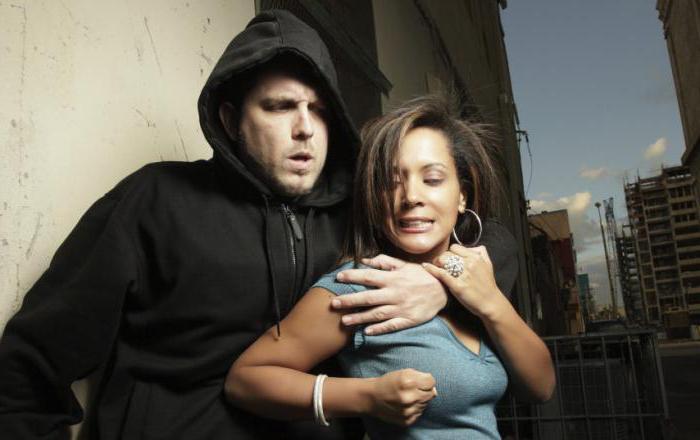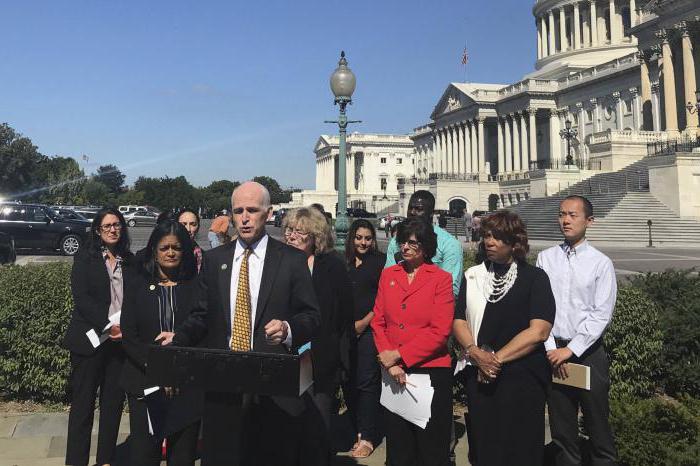For unlawful acts, certain coercive measures are applied to the guilty citizens of the country. There are special circumstances that exclude legal liability. When committing minor offenses or crimes in this situation, there is no material sign. Such acts include only those that are approved by law.

The use of necessary defense
The circumstances excluding the unlawfulness of the act and legal liability include the necessary defense, which provides for the protection of the individual and other persons, as well as public and state interests protected by law. As a result of such interaction with an encroaching person, certain harm is allowed.
Defense is permissible only against unlawful acts directed by another person. When an assault must be present all the objective signs of a crime. It is forbidden to use the necessary defense for other types of offenses. If an attack on a person is carried out by several people, then the damage can be done to all members of the group.
Necessary defense can also be applied in the following cases:
- when defending immediately after the attack, when the end of the defense was not clearly defined;
- upon suspension of the infringement to create the most successful environment, allowing to continue attacking actions with an advantage.

The law also provides for imaginary defense. In such cases, there is no place for acts that are dangerous to humans. The defender mistakenly considered the existence of such an assault. Thus, the absence of circumstances precluding legal liability is noted. A person may be liable for intentionally or unintentionally causing harm, depending on the actions taken.
Emergency cases
Sometimes, in order to prevent damage to one’s own interests and harm the state and society, an act is carried out that affects other protected rights. This is called an emergency, which is a circumstance that excludes legal liability.
Extreme need has nothing to do with the use of the necessary defense. It is different in that the damage is caused not to the person who created the dangerous situation, but to other people. The destruction of property located in the immediate vicinity of a fire can be considered a good example of such a situation if the main goal was to prevent the further spread of fire.
This circumstance, excluding unlawfulness and legal liability, can be called a conflict of subjective rights. One of them is violated in the current situation because of the other. However, sometimes extreme need is the result of a clash of responsibilities. An example is the case when two patients seek emergency medical care at once. The doctor can choose only one option. Priority in favor of a seriously ill patient will be considered optimal in such conditions. He will not be charged for damage that was caused to the second person due to being late.

The presence of reasonable risk
The circumstances excluding legal liability also include reasonable risk.It means lawful behavior aimed at achieving a useful goal for society, with the possible likelihood of adverse consequences, even if the damage is caused to interests that are protected by criminal law.
An example is the testing of vehicles manufactured using new technologies. To identify possible defects there is a fairly high risk of an emergency. The person involved in the test may suffer or die. Reasonable risk is quite common in medicine and business-related activities.
Most often, such situations are associated with the professional activities of certain individuals. However, some scientists allow the occurrence of such cases directly in everyday conditions.

Reasonable risk may be:
- production;
- commercial;
- scientific and technical;
- organizational and managerial;
- economic.
Several special conditions must be met so that the situation can be considered a circumstance that excludes legal liability. The grounds for legal liability in other cases may occur. First, risky actions should be beneficial to society. Secondly, the goal can only be achieved in this way. Thirdly, the person performing such actions has a real chance to prevent damage.
The insignificance of the harm done
In practice, there is a circumstance exempting from legal liability and excluding any punishment. It involves minor damage. Formally, in such a situation there is a sign of crime, but there is no danger to society.
Such acts must be distinguished from those falling under administrative or civil law offenses. For example, when public order is disturbed. The framework of insignificance is not fully defined, therefore they are established in an arbitrary order by the responsible authorities.
An example of such an act is the theft of a very small amount. If a fan of some actress sneaked into the dressing room and stole a pencil worth 5-10 rubles as a keepsake, she would not be held accountable, since there are no mercenary motives in this case.
Physical or mental coercion
Another circumstance that excludes legal liability may be coercion carried out physically or mentally. It involves the manifestation of violence against a person in order to achieve a criminal goal against his will. Responsibility in such a situation will be borne by the subject, forcing to certain illegal actions.

By physical coercion is meant a violent effect on the human body, leading to severe pain or damage to health in general. To achieve a criminal goal, beatings, various weapons can be used, powerful drugs and the like can be used.
Mental coercion involves the impact on human consciousness through information. Usually it poses an immediate threat of violence against a particular person or his relatives.
Execution of an order or instruction
Another type of circumstances that exclude legal liability may be the execution of an order or a specific order. A person who carries out dangerous acts for the community, within the framework of a service or a state of emergency, may be freed from criminal prosecution.

To do this, three basic conditions must be met, which are listed below.
- The request should only come from a competent person or authority having such authority. It can be not only in writing.
- The person must comply with the order, otherwise he will face criminal, disciplinary or administrative liability.
- The order should not clearly contradict the main regulatory legal acts.
A knowingly unlawful claim may amount to incitement. In this case, the contractor bears full responsibility for the actions performed, as well as the person who issued the order or any order.
Incident or contingency
Accident may also serve as a circumstance excluding legal liability. This means damage in the course of random circumstances that could not have been foreseen in advance. For example, a vehicle may not bring down a passer-by on its own, but accidentally when another vehicle gives it movement. In an incident, the subject could not even imagine the existence of a public danger to which his behavior led. In such situations, the main role is played by chance.
Irresponsible state
A person committing illegal acts may not understand the meaning of his actions due to a mental disorder or illness. Insanity is determined as a result of a special medical examination. It is on the basis of her that the court may declare a person incompetent. However, it must be understood that people with limited responsibility are responsible for unlawful misconduct and crime.
Criminal Detention
An action aimed at detaining a person who committed a crime does not fall under legal liability, if it is impossible to stop it by other means. However, not every act of detention will be lawful. To do this, you must be sure of his guilt. It is permissible to detain if the person has committed a crime and intends to hide, while explicitly causing harm is prohibited.

Irresistible force
Liability for failure to fulfill certain obligations or for causing damage is excluded in force majeure circumstances. By them is meant the effect of force majeure. Traditionally, such situations include natural disasters such as earthquakes, floods, hurricanes and typhoons.
However, they can also be the result of public unrest, which is expressed in the conduct of hostilities, strikes and other similar events. In order to be released from obligations, it is necessary to prove the existence of such force, as well as the existence of a causal link between the offense and the force majeure situation itself. Force majeure must not be confused directly with accidental harm.
In conclusion
It should not be forgotten that the absence of circumstances precluding legal liability is the basis for a guilty verdict in case of violation of legislative norms. Only the above situations can be a reason to avoid punishment. In other cases, the citizen should be responsible for misconduct or crime before the law.